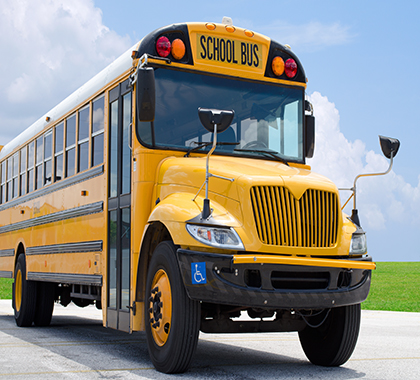Increasing the private share of the world’s total primary school enrollment would moderately increase achievement in math, reading, and science, reports “The Public Benefit of Private Schooling: Test Scores Rise When There Is More of It,” released in January 2018 by the Cato Institute.
The study examined children’s test scores in 52 countries to see whether the data support the economic theory that private schools improve outcomes by putting competitive pressure on other schools, plus the proposition school choice provides a better match between teachers and pupils. The statistics support these hypotheses, the study shows.
Rather than relying on potentially faulty international comparisons, the study compares each nation to itself over time, controlling for changes in population and gross domestic product.
“I find that access to private schooling has moderate effects on math, reading, and science achievement for children across the globe,” study author Corey DeAngelis writes. “This report, alongside robust scientific evidence of improved short- and long-term outcomes for students and societies, further indicates that decisionmakers ought to increase access to private school choice around the world. In particular, Education Savings Accounts, tuition tax credits, individual tax credit deductions, and voucher programs could increase access to private schooling and other private educational services within countries.”
Comparing School Choice
DeAngelis, a policy analyst at Cato Institute’s Center for Educational Freedom, told School Reform News not all forms of education choice are created equal.
“This study does not tease out the differential effects of charter schools and private schools,” DeAngelis said. “However, there are strong economic reasons to prefer private schools over charters. Private schools can fluctuate tuition levels, meaning that they can be financially rewarded when they attract large numbers of customers. Charter schools, on the other hand, are rewarded with a student waitlist. And as economists know, persistent shortages lead to quality reduction over time. The waitlist gives the charter school strong monopoly power—after all, if a family is unhappy with the education offered, the charter school could replace them with some other desperate customer waiting in line.
“Prices eliminate shortages,” DeAngelis said. “That is why we rarely find empty shelves in the grocery stores in the United States. Just imagine if government were to set the price of a loaf of bread artificially low—to 10 cents, for example. Of course, the shelves would constantly be empty. So it goes with charter schools.”
Considers ESAs Best Policy
DeAngelis says education savings accounts (ESAs) are ideal for maximizing student achievement.
“Privately funded ESAs are the optimal education choice policy we have available today,” DeAngelis said. “By allowing families to customize their children’s educations, ESAs take advantage of the fact that schooling is but one channel to achieve an education. While vouchers are school choice, ESAs are education choice. And education is what we really want.
“In addition, ESAs are more closely aligned with economic theory because families have an incentive to spend less than the maximum amount on their private school,” DeAngelis said. “That is not the case with vouchers, as families do not get to keep unused voucher funds for other expenses. In other words, vouchers create price floors in the schooling market, while ESAs allow for price variation. Price variation provides private schools with the information and incentives they need to succeed.”
‘Countrywide Effects’
Patrick J. Wolf, a distinguished professor at the University of Arkansas’ Department of Education Reform, says the Cato study offers a unique global perspective.
“[The study] produces an unbiased estimate that increased access to private schooling in developed countries causes student test scores to go up in reading, math, and science,” Wolf said. “These are countrywide effects, and not just results from atypical places such as inner cities. Greater access to private schooling for a country’s population not only is correlated with higher test scores, it actually causes higher test scores.”
Says Parents Know Best
Marty Lueken, director of fiscal policy and analysis at EdChoice, says the study’s findings should be common sense.
“These findings may perhaps not be surprising to some, and they support what the scientific record suggests about school choice: that expanding options for families generates a variety of benefits for individuals, families, and society,” Lueken said. “The reason is simple. Parents are in the best position to know and pursue what’s best for their own children, and expanding quality options and educational opportunity will increase the likelihood for the best matches to be made between children and the kinds of education they receive. I think making good matches is a worthwhile goal, and school choice policies can be an effective way to achieve this goal.
“While this study seems to corroborate positive findings from the broader school choice literature, it also highlights that while we’ve enjoyed some success in expanding school choice here in the United States, we still have a very long way to go,” Lueken said.
Harry Painter ([email protected]) writes from Brooklyn, New York.
INTERNET INFO:
Corey DeAngelis, “The Public Benefit of Private Schooling: Test Scores Rise When There Is More of It,” Cato Institute, January 22, 2018: https://heartland.org/publications-resources/publications/the-public-benefit-of-private-schooling




